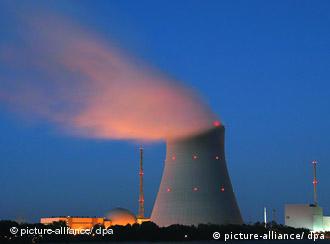Yes, and moving away from baseload coal, nukes, and natural gas and towards distributed solar and wind power will help with that, both directly by making the grid more resilient, and indirectly by slowing climate change.
Clare Foran wrote for NationalJournal 12 August 2013, Climate Change Is Threatening the Power Grid: So says the White House, in a new report that recommends strengthening the grid.
Just days away from the 10-year anniversary of the worst power outage in U.S. history, the White House and the Energy Department released a report on Monday evaluating the resiliency of the nation’s electric grid and recommending steps to prevent future blackouts.
The report called storms and severe weather “the leading cause of power outages in the United States,” and warned against the steep cost of weather-related damage to the electric grid. It put the price tag for electrical failures caused by inclement weather at between $18 billion and $33 billion annually, and noted that costs have increased in recent years, jumping from a range of $14 billion to $26 billion in 2003 to $27 billion to $52 billion in 2012. Storms exceeding a billion dollars in damages (electrical and otherwise) have also become more frequent in the past decade, as the chart below shows.
Well, Entergy’s Arkansas Nuclear 1 (ANO1) is still down more than four months after a fatal accident (hey, look at that; it got up to 87% yesterday before it shut down again). Xcel Energy managed to run up $267 over budget and 5 1/2 months downtime on its Monticello nuke. And of course San Onofre 2 and 3 are down forever because of faulty parts that Southern California Edison knew were bad before it tried to get NRC to let it restart. None of those was weather-related.
 But of course
the same Entergy that still has ANO1 down operates
Pilgrim that has been down
because of both winter snow and summer heat.
Many
nukes can’t handle heat.
But of course
the same Entergy that still has ANO1 down operates
Pilgrim that has been down
because of both winter snow and summer heat.
Many
nukes can’t handle heat.
And many nukes and their vendors have been involved in records scandals such as a supervisor falsifying safety records at Entergy’s Indian Point.
If somebody falsifies solar panel records you get solar panels that don’t work, not a safety risk for millions of people. How about we stop building new nukes, shut down more of the old ones, and get on with solar panels, which like summer sunshine just fine? Massachusetts may not make much solar power in a winter blizzard, but it its nukes are going to be shut down then anyway, we might as well ship them Georgia solar power instead.
Sure, we should also do this:
One investment to strengthen the system, they suggested, would be to add automated sensors to pinpoint the exact location of a power failure. “One of the things we have been working with is to help deploy automated switches, which utilities have been able to [use] to minimize the impact of outages … so what they’ve been able to do is actually isolate a fault or where the damage is on the system faster and be able to keep other customers up that normally would have gone down in an outage,” one offical said.
Administration officals also urged continued investment in monitoring systems to identify areas of the grid most likely to be damaged in the event of a storm.
Wait, electric utilities haven’t already done that?
Maybe they should
stop wasting our time and money with nuclear boondoggles
and get on with fixing some real problems!
If even
Cattenom-smoking
EDF can
exit nukes and turn to solar and wind,
 formerly all-powerful
Georgia Power and
Southern Company can do the same.
Eventually we’ll hear even Paul Bowers saying
a carbon tax is needed
once he catches on that his company and its parent SO can profit
by more of that
solar power GA PSC required it to buy.
formerly all-powerful
Georgia Power and
Southern Company can do the same.
Eventually we’ll hear even Paul Bowers saying
a carbon tax is needed
once he catches on that his company and its parent SO can profit
by more of that
solar power GA PSC required it to buy.
-jsq
Short Link: